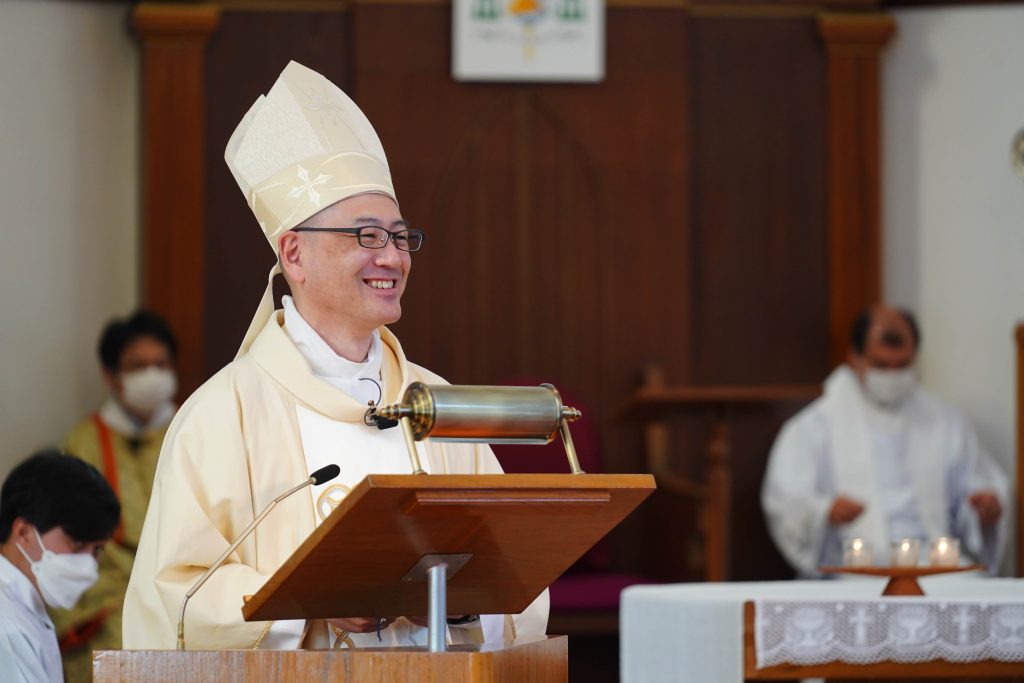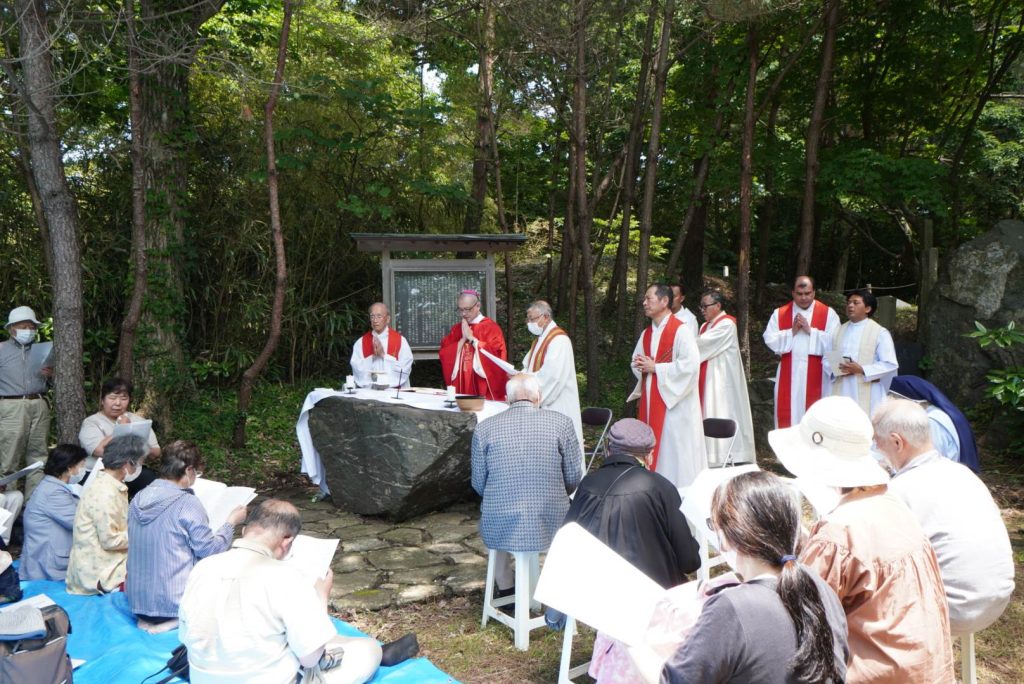Explore how Bishop Daisuke Narui, SVD, of the Niigata Diocese in Japan champions environmental stewardship through his own ecological conversion.

Bishop Daisuke Narui, SVD, of the Niigata Diocese in Japan demonstrates an environmental stewardship rooted in a profound experience that marked the beginning of his journey towards advocating for the planet and its inhabitants.
This personal mission became a core focus for him during his tenure as the Justice, Peace and Integrity of Creation Coordinator of the Generalate of the Society of the Divine Word. Over eight years, he worked globally on social issues deeply connected to environmental concerns, particularly indigenous rights:
“They not only depend on forests, rivers, and the sea to receive food, medicine, and many different material necessities for their life, but also nature is a big part of their culture and spirituality. Destroying nature is not a simple damage to nature and its fruits, but also a loss of their culture and spirituality. I was moved by the suffering of such indigenous people and it became a motivation for me to commit to integral ecology.”
Under Bishop Narui’s leadership since 2020, the diocese has witnessed significant strides in embedding the principles of integral ecology into its identity. Upon integrating the Laudato Si’ Action Platform into the mission of the Niigata Diocese, Bishop Narui envisioned a comprehensive approach to ecological stewardship.
He highlights the natural predisposition of the local community towards environmental sensitivity, underlining the area’s commitment to realizing a sustainable society. This strategic vision was aimed at addressing all seven goals of the Laudato Si’ Goals, reflecting a holistic approach to nurturing a sustainable society in harmony with creation.

Bishop Daisuke Narui, alongside fellow clergy, leads an outdoor gathering in a forest setting, embracing the interconnection of faith, community, and the natural environment in the spirit of integral ecology.
The interplay between faith and action in the Niigata Diocese’s journey towards integral ecology is notably influenced by the region’s deep-rooted spirituality and connection with nature. “Based on the Shinto (an animistic religion in Japan) spirituality,” he explains, “most Japanese people, including Catholics, have a sense which finds a spiritual presence in nature.” This inherent respect for nature among the local populace serves as a solid foundation for integrating faith-based initiatives with ecological actions.
Even so the diocese has confronted challenges in its efforts. An aging society and the migration of the youth to urban areas has led to a reliance on migrant workers from Vietnam and the Philippines, necessitating efforts to foster inclusive parish communities. “We are trying to form parish communities where elderly Japanese and young migrants get together,” highlighting his commitment to transform these obstacles into opportunities.
Today, the bishop’s personal coat of arms and motto, “Together, always for the Gospel,” celebrates a commitment to living, sharing, and spreading the Gospel in joy, grounded in the rich natural environment. Additionally, the diocese’s recently published Mission and Pastoral Policy emphasizes walking with the vulnerable to build a society in harmony with God’s creation, reinforcing the commitment to both action and spirituality in addressing integral ecology.
For leaders hesitant to embark on their Laudato Si’ journey, Bishop Narui offers sage advice, underscoring the importance of harmonizing faith and action. He advises, “One thing I personally commit is to talk about integral ecology during homily and recollection.” Through such endeavors, Bishop Narui illustrates the powerful role of faith leaders in fostering an ethos of care for our common home, guiding their communities towards a sustainable and spiritually enriched future.